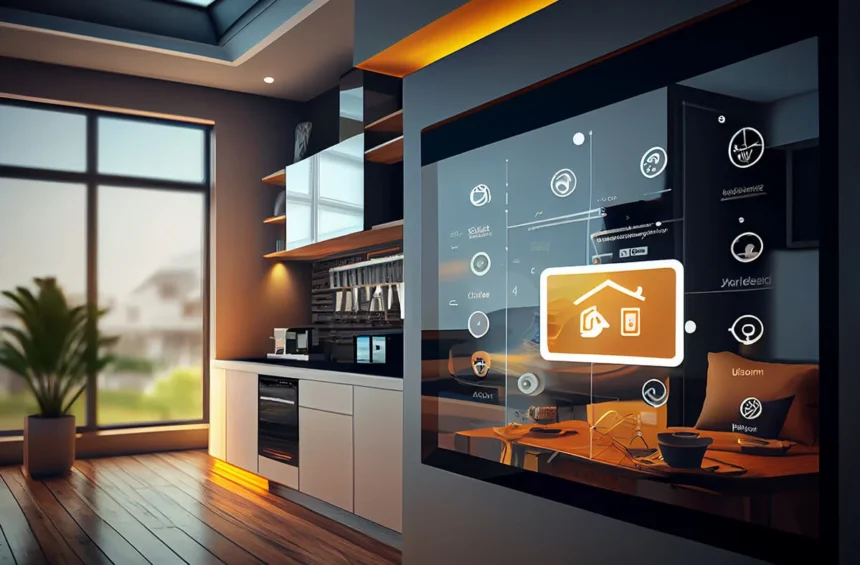The technological landscape is shifting rapidly, and innovation has become the key to staying ahead. For organizations, individuals, and industries, staying at the forefront of technological progress means adapting to fast-paced advancements. One critical component in driving such change is the establishment and evolution of technology house.
A Technology House is where creative minds meet resources, research, and development. These environments incubate innovative solutions that address the rapidly changing needs of various industries. These innovation hubs are key in solving today’s most pressing challenges, including sustainability, health, and global connectivity.
In this blog post, we delve into the concept of Technology Houses, their importance, their impact across industries, and the technologies that define their role in shaping future tech.
What is a Technology House?
A Technology House is a dedicated space or environment where innovation thrives, often with a focus on product development, research, and testing. It’s a collaborative ecosystem that brings creative minds, resources, and technology experts together to incubate and develop innovative solutions. These places are incubators for new technological solutions, experiments, and breakthroughs across various domains, including hardware, software, and engineering.
At the heart of a Technology House, you’ll find a space where technologists, designers, software developers, and product engineers collaborate on pushing technological boundaries. These hubs often work on exploring applications in areas such as artificial intelligence (AI), IoT (Internet of Things), and robotics. Examples of such Technology Houses include Google X, Apple Park, and Microsoft Research Lab.
Key Features of a Technology House:
- Collaborative Innovation: Often designed to break down silos between different sectors and bring together experts from multiple domains.
- Research and Development (R&D): The environment heavily invests in R&D to explore new products or technologies and improve existing solutions.
- Technology Testing and Prototyping: Technology Houses focuses on fast prototyping and rigorous testing, unlike traditional companies.
- Focus on Advanced Technologies: Many Technology Houses implement cutting-edge technologies to develop next-gen solutions and stay ahead of the competition.
The Function of Technology Houses in Advance
Technology Houses go far beyond merely creating new products or solutions. Their impact extends throughout the entire technology development lifecycle—from ideation to testing, commercialization, and beyond. Let’s explore these significant contributions:
Idea Generation & Ideation
The first step in any innovation process is idea generation. Technology Houses facilitate brainstorming sessions and collaborative discussions where designers, researchers, and technologists can pitch new ideas. Whether that’s in the field of AI, sustainable tech, or improving current services, Technology Houses provide a conducive environment for people to explore new ideas that may revolutionize an industry.
Prototyping and Testing
Once an idea takes shape, the next step is creating a prototype. Prototyping is crucial to assess the viability of an idea in real-world settings. Technology Houses typically have in-house labs and testing equipment to build prototypes before moving to full-scale production. Technology houses ensure that only the most viable and sustainable solutions move forward by iterating quickly through testing phases.
Product Commercialization
One of the challenges that many tech startups face is taking a product from prototype to market. A Technology House provides essential resources for commercialization, such as marketing support, business development, and connections to investors and partners. These efforts help transform experimental concepts into successful, scalable products.
Knowledge Sharing and Collaboration
Technology Houses thrive on collaboration. They provide an environment where engineering, data science, design, and product management experts collaborate to share knowledge improve, and refine technology to be more effective and cost-efficient. Most houses run events like conferences, workshops, and hackathons, where like-minded individuals meet to collaborate on new technology solutions.
Technology Houses and Industry Transformation
Transforming Key Sectors with Cutting-Edge Tech
Technology Houses contribute to many industries, reshaping everything from healthcare to entertainment. These hubs have the power to transform industries in several remarkable ways, pioneering innovations and finding practical applications for advanced technologies. This transformative power inspires hope for a future where technology can solve some of our most pressing challenges.
Healthcare Innovation
Healthcare is one of the most crucial sectors in which technology houses are making a significant impact. Research and prototyping within technology hubs have facilitated the rapid rise of telemedicine, AI-driven diagnostics, and medical robots. Let’s dive deeper into a few specific technologies shaping healthcare:
- Telemedicine: The development of platforms and applications enabling remote consultations.
- AI in Diagnostics: AI solutions are helping doctors diagnose conditions faster, enabling better decision-making.
- Medical Robotics: Robots are now used for surgeries, increasing precision and minimizing risks.
These advances help not only healthcare professionals but also enhance overall healthcare outcomes for patients around the world.
Manufacturing & Smart Industry Transformation
Another vital sector positively influenced by Technology Houses is the manufacturing industry. Through the application of the Internet of Things (IoT) and automation, smart factories are taking over the conventional manufacturing industry. Manufacturers can improve efficiency, reduce costs, and minimize waste using data analytics, AI algorithms, and interconnected machines.
Technology Houses allow manufacturers to implement these solutions by researching innovative materials and improving machine interfaces, leading to better products and a more sustainable industry.
Entertainment & Virtual Reality
One of the most fascinating technological advances has been entertainment, particularly virtual reality (VR), augmented reality (AR), and game development. Technology Houses are at the forefront of creating immersive entertainment experiences that revolutionize how we experience gaming and media. VR gaming and entertainment platforms, developed in Technology Houses, allow users to live in new worlds, while augmented reality (AR) experiences bring imagination to life.
Technology Houses significantly shape the entertainment industry by offering immersive storytelling, VR gaming worlds, and innovative VR tourism experiences.
The Benefits of Having a Technology House
While the tech innovations of Technology Houses are wide-ranging, their benefits are equally valuable for businesses, startups, and consumers. The key advantages include:
Promoting Innovation and Collaboration
Technology Houses are innovation powerhouses. Companies benefit from joining these environments by exposing their teams to new ideas, expanding capabilities, and enabling cross-industry collaboration. In an era where businesses often compete for technological dominance, collaborative ecosystems allow companies to leverage external knowledge and expertise.
Access to Cutting-Edge Resources
These hubs provide access to exclusive tools, equipment, and expertise that may not be available. Many Technology Houses include state-of-the-art resources that may be cost-prohibitive or difficult for startups and small businesses to access independently.
Shortening Time-to-Market
Speed is crucial when launching new technologies, and Technology Houses are designed to facilitate fast prototyping and testing, enabling businesses to reduce the time-to-market significantly. This shortens the product development lifecycle, allowing companies to validate their ideas and meet market demands quickly.
Fostering a Startup Ecosystem
Technology Houses can offer startups mentorship, networking opportunities, and investor access. Many incubator programs by Technology Houses actively support entrepreneurs by providing them with resources and guidance to grow their ideas into fully-fledged products.
Conclusion:
As we look toward the future, it’s evident that Technology Houses are integral to driving technological progress across multiple industries. They provide businesses and individuals with the best tools, resources, and expertise they would otherwise struggle to find.
Whether it’s enabling smart manufacturing, driving digital healthcare solutions, or offering unparalleled prototyping environments for new digital platforms, Technology Houses will continue to be a hub for change and progress. These hubs ensure that companies of all sizes remain competitive, flexible, and ready to address the challenges of tomorrow with today’s technological solutions.
Frequently Asked Questions (FAQs)
What is a Technology House?
A Technology House is a space where innovation and research are fostered, leading to new technology products and solutions. It’s a collaborative hub focused on R&D, prototyping, and product development.
Who can benefit from a Technology House?
Startups, large businesses, universities, research organizations, and even independent innovators can benefit from the resources and support that Technology Houses offer.
How do Technology Houses differ from traditional tech companies?
Unlike traditional tech companies, Technology Houses specializes in R&D, prototyping, and collaborative development, whereas tech companies primarily focus on selling products and services.
Can small businesses use Technology Houses?
Technology Houses support businesses of all sizes, offering tools, knowledge, and resources that small companies may otherwise find costly or difficult to access.
Are all Technology Houses the same?
Not all Technology Houses are identical. Depending on their mission and resources, they may focus on specific sectors such as software development, AI, IoT, or robotics.
Do Technology Houses accept collaborations?
Many Technology Houses encourage collaborations with universities, businesses, and entrepreneurs to foster innovation.
How can one join a Technology House?
Many Technology Houses offer incubator and accelerator programs where entrepreneurs, startups, and established companies can apply to access their resources.







